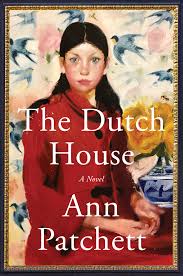Chapter 1
byChapter 1 introduces the foundation of the narrative by focusing on the first time Andrea, their father’s new love interest, is introduced to the Dutch House, a grand estate that serves as both a setting and a symbol of the family’s changing fortunes. The narrator, along with his sister Maeve, witnesses the arrival of Andrea, an event that carries an unspoken tension, signaling a shift in the balance of their lives. Their father, a man of few words when it comes to emotions, appears indifferent to the potential impact of Andrea’s presence, leaving Maeve and the narrator to silently decipher the significance of this moment.
From the very start, Andrea’s fascination with the Dutch House is evident, revealing that her interest extends beyond their father and into the estate’s opulent history and grandeur. Maeve and the narrator, deeply attached to the house and its past, instinctively sense that Andrea views the property as something to be claimed, rather than a home built on shared family history. This realization sows the first seeds of suspicion and foreshadows the tension that will come to define their relationship with her. While Andrea moves through the house with admiration, Maeve and the narrator quietly observe, recognizing the beginning of something neither of them can fully articulate but both instinctively distrust.
The history of the Dutch House itself is woven into the narrative, detailing its past owners, particularly the VanHoebeeks, who built it with an eye for European elegance, complete with intricate architecture, gilded ceilings, and expansive windows. The estate stands as a monument to wealth and status but also as a relic of shifting family legacies, absorbing the stories of its inhabitants over generations. For Maeve and the narrator, the house represents stability, connection, and the echoes of their past, but for Andrea, it is an object of desire, a structure she sees as her rightful domain. Her presence threatens to redefine not just their family but their understanding of home itself.
The meeting between Andrea and the siblings is polite yet distant, charged with an underlying apprehension that neither Maeve nor the narrator can ignore. While their father appears at ease, even proud to show off Andrea, Maeve’s guarded nature and sharp intuition pick up on subtle cues—Andrea’s possessiveness toward the house, her calculating glances, and the unspoken tension she carries. Unlike other guests who admire the house for its beauty and history, Andrea surveys it with the air of someone assessing her future property, marking the beginning of an unspoken battle over its significance.
As the chapter progresses, the narrator reflects on how their mother, long absent from their lives, once inhabited these same spaces, her memory lingering in the house’s walls and the quiet corners Maeve and he still cherish. Their mother’s sudden disappearance from their lives left a void, and while their father avoids discussing her departure, Maeve and the narrator piece together their own understanding of her absence. The presence of Andrea only serves to magnify this loss, making it clear that she is not merely a visitor—she is a force of change, one that neither sibling is ready to accept.
By the time Andrea departs that evening, the Dutch House feels subtly altered, as if it has begun to slip from the siblings’ grasp before they even realize it. Maeve, perceptive as ever, senses the encroaching threat, though she keeps her thoughts to herself, while the narrator, still young and hopeful, struggles to comprehend the unspoken shifts happening around him. The chapter closes with an air of uncertainty, the Dutch House standing as both a fortress and a battleground, setting the stage for the unfolding tensions that will shape the lives of Maeve and the narrator in the years to come.


